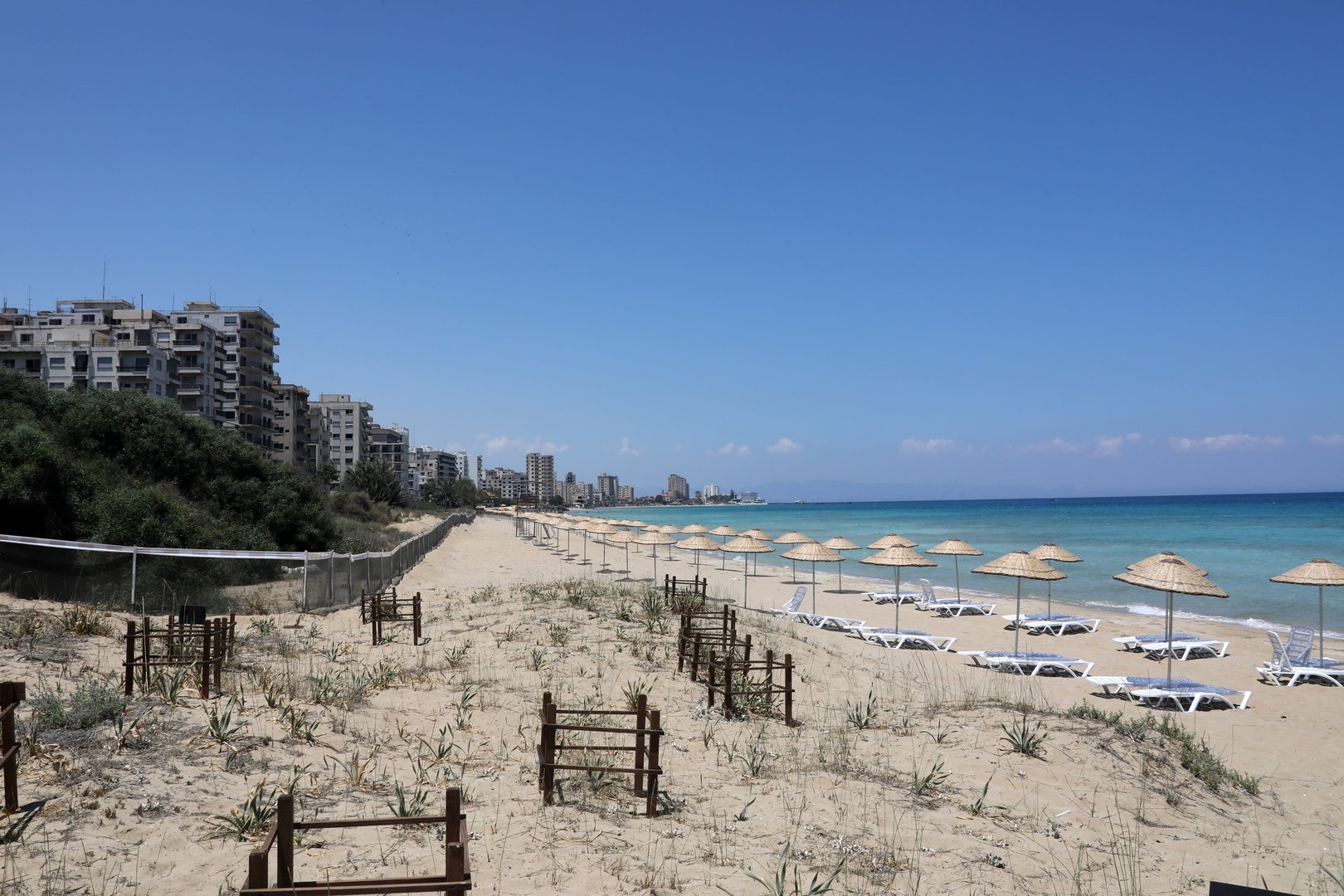The UN Security Council on Friday condemned plans announced by Turkey and the Turkish Cypriots to reopen part of the fenced-off town of Varosha and called for the immediate reversal of the latest and previous actions in the area.
“The Security Council condemns the announcement in Cyprus by Turkish and Turkish Cypriot leaders on July 20, 2021 on the further reopening of a part of the fenced-off area of Varosha,” a statement from the UNSC said. “The Security Council expresses its deep regret regarding these unilateral actions that run contrary to its previous resolutions and statements.”
“The Security Council calls for the immediate reversal of this course of action and the reversal of all steps taken on Varosha since October 2020.”
The statement followed three days of haggling and three drafts to produce a final statement on Varosha.
The third version, which went through without objections, included the reference to the “Turkish and Turkish Cypriot leaders”, pointing specifically to their culpability, which was a reference requested by Nicosia. This had been absent from the first two drafts.
In its statement, the SC underscored the need to avoid any further unilateral action that was not in accordance with its resolutions on Varosha “which could raise tensions on the island and harm prospects for a settlement.”
It reaffirmed the status of Varosha set out in resolutions 550 (1984) and 789 (1992).
“Any attempt to settle any part of Varosha by people other than its inhabitants is inadmissible,” it said.
“The Security Council stresses the importance of full respect and implementation of its resolutions, including the transfer of Varosha to UN administration and of respect for Unficyp’s freedom of movement.”
The SC reaffirmed its commitment to an enduring, comprehensive and just settlement in accordance with the wishes of the Cypriot people, and based on a bicommunal, bizonal federation with political equality, as set out in relevant Security Council resolutions, and its support for the Secretary-General’s efforts.
Foreign Minister Nikos Christodoulides said the statement received strong support from permanent and non-permanent members of the Security Council.
The statement was a tool to be used in attaining certain other goals, the minister told the state broadcaster, adding that the government would now focus on how to reverse the current state of affairs and tackle Turkey’s revisionist policy.
Earlier, Greek diplomatic sources expressed Athens’ satisfaction with the Security Council statement condemning the Turkish and Turkish Cypriot leadership’s plans on Varosha.
Turkey rejected the UNSC statement, as well as “the statements from various countries which are based on unfounded claims and inconsistent with the realities on the Island.”
“All decisions taken by the TRNC authorities, within the scope of the Maras (Varosha) initiative, respect the property rights and are in full compliance with international law,” the foreign ministry said. “Contrary to claims, the relevant UN Security Council resolutions are not violated. Moreover, the UN Security Council resolutions are not above property and sovereignty rights.”
Turkey said the initiative will not cause new grievances but will eliminate the current ones to the benefit of everyone.
“On the other hand, the UN Security Council unfortunately insists on not to notice the realities on the ground concerning the Cyprus issue as well.”
Despite all the goodwill of the Turkish side, decades of efforts could not lead to a bizonal, bicommunal federal settlement due to the intransigent attitude of the Greek Cypriot side.
“In the absence of an agreement on this model between the parties, insisting on a federal settlement now damages the credibility of the Council.”
Ankara said a new process towards a just, lasting and sustainable settlement to the Cyprus issue could begin only by securing the equal sovereignty and equal international status of the Turkish Cypriot people.
Turkish Cypriot leader Ersin Tatar said the decision would not be reversed, claiming it was in line with international law and human rights.
Tatar said Varosha was part of the Turkish Cypriot breakaway state and the decision to open part of it was an “excellent initiative that would allow former residents and those eligible to return to their properties.”
The Turkish Cypriot leader said the return will be implemented through the immovable property commission in the north, considered Turkey’s subordinate administration by the European Court of Human Rights.
Tatar suggested the Republic, supported by the EU and other countries was trying to scupper the initiative
He said the EU, which had failed to fulfil its promises to the Turkish Cypriots, was now opposed to the opening of Varosha “talking about international law and human rights and keeping a pro-Greek Cypriot stance.”
“This once more reveals the EU’s hypocrisy and lack of principles,” he said.
On Tuesday, in the presence of Turkish President Tayyip Erdogan, Tatar announced that the military zone in 3.5 per cent of Varosha would be abolished and the area would be reopened for its Greek Cypriot residents to return.
It followed another decision in October last year to reopen part of the beachfront.
Varosha had been abandoned by its Greek Cypriot residents in August 1974 ahead of the advancing Turkish army.
It appears occupying the town was not on Ankara’s plan so it remained a ‘ghost town’ part of which was accessible only to Turkish officers.







Click here to change your cookie preferences